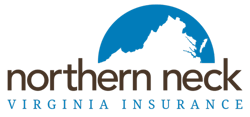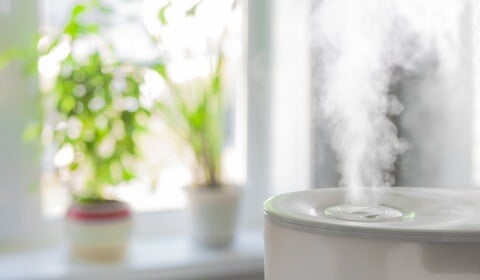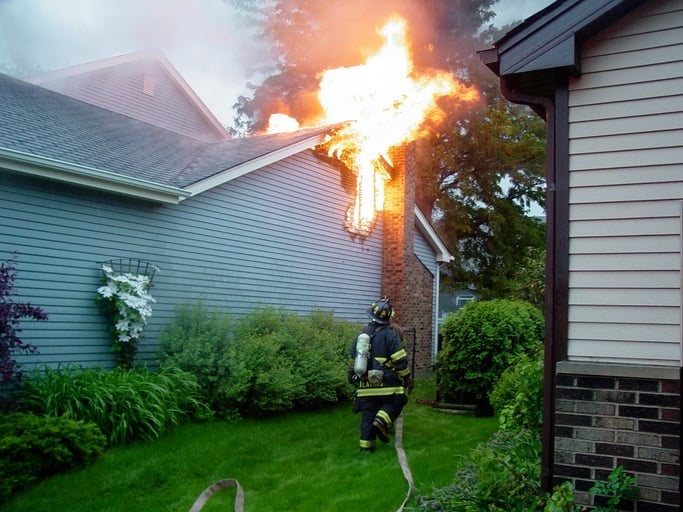
Fireproofing extra sources of home heat
Fireplaces and wood stoves are designed to safely contain wood-fuel fires and provide heat and ambiance for your home as cold weather comes to Virginia. Your chimney moves the by-products of combustion, such as smoke, water vapor, gases, unburned wood particles, hydrocarbon, tar fog, and assorted minerals, away from your home. Find out how these by-products cause a winter home fire hazard and how to fireproof your home's heating this winter.
What causes chimney fires?
Creosote buildup
As by-products exit the fireplace or woodstove and flow into the relatively cooler chimney, condensation creates a residue that sticks to the chimney's inner walls called creosote. With each burn in your fireplace, creosote builds layer upon layer. When those layers begin to burn inside your chimney, the fire can spread to your home through the brick by heat transfer.
Watch how creosote created a devastating fire in August of 2020 in this home:
Blocked flues
A blocked flue causes chimney fires and can result in a smoke-filled room and dangerous carbon monoxide leaking into your home. Chimney flues get blocked by animal nests, creosote buildup, or a damaged liner. A chimney professional will look for signs of a blocked flue and make sure you have chimney caps to keep moisture out and block animals from entering.
How to stop a chimney fire
Slow-burning chimney fires
Slow-burning chimney fires can occur without you ever knowing, putting you at risk of having another one soon! This is a very good reason to have your chimney inspected annually.
According to the Chimney Safety Institute of America (CSIA), signs of a past chimney fire include:
- “Puffy” or “honeycombed” creosote in your chimney and/or fireplace
- Discolored and/or distorted rain cap/chimney cap
- Warped metal on the damper, smoke chamber connector pipe, or factory-built metal chimney
- Evidence of smoke escaping through the mortar joints of masonry or tile liners
- Cracked or collapsed flue tiles or tiles with large chunks missing
- Heat-damaged TV antenna attached to the chimney
- Creosote flakes and pieces on the roof or ground
- Roofing material damaged from hot creosote
- Cracks in the exterior masonry
Fast-burning chimney fires
A fast-burning fire makes loud popping noises or a low rumbling sound, almost like a freight train or a low-flying airplane. A neighbor may tell you there is heavy smoke or sparks spraying out of your chimney top.
If you experience a chimney fire, putting your family's safety first is critical. Get everyone out a safe distance from the home and call 911. Chimney fires can spread to other areas quickly. Close all doors behind you to cut off as much air to the fire as possible. You can use approved products to stop the fire if you catch it early, but it's always best to leave the home and let your local fire department handle the fire.
How to prevent a chimney fire
Why you should hire a professional
Clean chimneys don't catch fire. Chimney fires account for 75% of home heating fires. If you do not have your chimney professionally cleaned each year, you run the danger of that build-up catching on fire and spreading to other areas of your home. The best way to prevent a chimney fire is to have an annual inspection and cleaning performed by a CSIA Certified Chimney Sweep. A professional chimney service will not just take care of creosote deposits and ensure structural soundness and correct clearances.
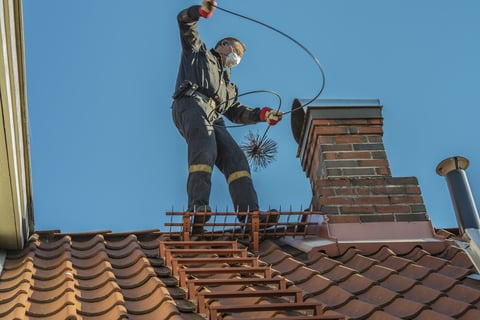
Why it pays to hire a chimney professional
We know what you’re thinking. What a pain in the ash! Or maybe you're thinking: I really don't want to spend the money. Do I really need to pay someone to have my fireplace or wood stove inspected and cleaned?
Yes, you do! Here's why:
- They can identify signs of smaller chimney fires that can happen without you even knowing because they extinguish on their own from a lack of oxygen. A BIG warning sign!
- It’s a really difficult job that is both messy and dangerous!
- This deeper level cleaning removes flammable creosote build-up that you can’t reach.
- Professionals have expert knowledge and special equipment.
- A qualified specialist will ensure your chimney is structurally sound.
- They can ensure the top of your chimney is free from moisture, critters, and debris and you have a good spark arrestor cap.
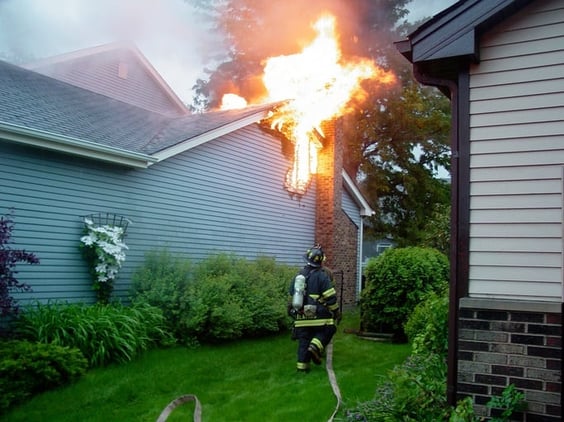
What does it cost to have a chimney cleaned in Virginia?
The average cost of chimney cleaning and inspection by a certified technician is about $250. Don’t skimp here. It’s peace of mind and basic maintenance. Even gas fireplaces need to be inspected and cleaned. We know from decades of experience here at NNINS that fire loss is the most costly home insurance claim. The good news is they are also the most avoidable. Don't miss our helpful articles about maintaining your fireplace and wood stove throughout the fall and winter months.
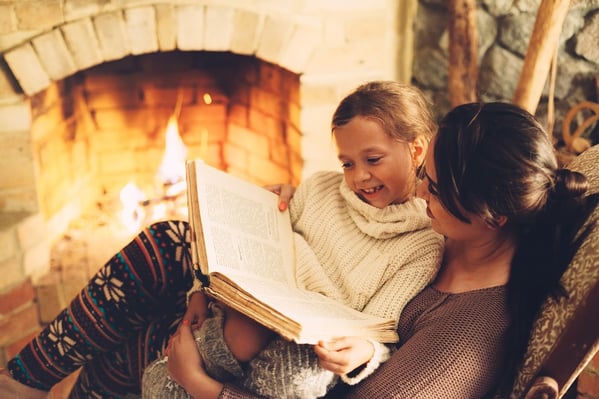
Does homeowners insurance cover chimney repair?
Your home insurance policy can cover damage to your home from an event such as a lightning strike or fire. Chimneys that are damaged due to age or normal wear and tear are not covered. Maintenance-related damage, like a fire caused by creosote, may also not be covered by homeowners insurance since this flammable substance implies that the chimney was neglected for a long time and caused by a preventable maintenance issue.
Learn more about homeowners insurance in Virginia >
Sources:
https://www.wikihow.com/Clean-a-Gas-Fireplace
https://www.csia.org/homeowners-resources.html
https://www.youtube.com/@ChimneySafetyUSA
THE NORTHERN NECK INSURANCE INTEGRITY PROMISE — We pledge to provide straight talk and good counsel from our NNINS Virginia insurance experts through our blog. While we hope you find this to be a helpful source of information, it does not replace the guidance of a licensed insurance professional, nor does it modify the terms of your Northern Neck Insurance policy in any way. All insurance products are governed by the terms in the applicable insurance policy.
